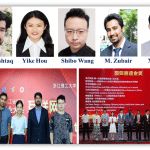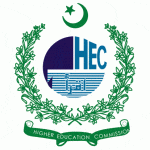Not a single allopathic medicine has been developed by Pakistani scientists and researchers since independence as quality research in the area of health and medicine is not being conducted at our medical universities and health institutions, experts deplored on Sunday and urged the authorities and the private sector to create an environment of research and development in the country.
Leading health experts said whatever research is being conducted at our medical universities and health institutions is of little value as it cannot be applied for developing commercial products or to be used for treatment of patients, for most of the Pakistani researchers indulge in research for getting promoted to next grades or to get doctorate degrees in the field health and medicine.
They were speaking at the 3rd international Medical Research Conference, organised by the Health Research Advisory Board (HealthRAB) in Karachi. It was addressed by national and international experts, including Prof Paul Barach of the Wayne State University, Prof Dr Ejaz Vohra, Dr Zakiuddin Ahmed, Prof Javed Akram from the University of Health Sciences (UHS) Lahore, Dr Shahzad Ali Khan from the Health Services Academy (HSA) Islamabad, Prof Khalid Masood Gondal from the King Edward University (KEMU) Lahore, President Pakistan Medical Commission Dr Arshad Taqi, Prof Abdul Basit and Prof Abdul Ghaffar Billo.
On the occasion, a ‘Prof Dr Tahir Sultan Shamsi Research Award’ was also awarded posthumously to renowned haematologist and bone marrow transplant surgeon Dr Tahir Shamsi, who died following brief illness in December last year, while three leading journalists — Hamid-ur-Rehman, Anwar Khan and Ikram Junaidi — were given best health journalist awards during the conference.
Growing diabetes in Pakistan: National research groups formed to tackle the issue
Eminent physician and health expert Prof Ejaz Vohra said that in Germany, students are asked to conduct research. He supported the suggestion of Pakistan Medical Commission (PMC) President Dr Arshad Taqi to promote research at the undergraduate level, saying this practice could provide quality researchers to the country, who could come up with new and unique health solutions for the people of Pakistan and rest of the world.
“Irrelevant research is being conducted by our researchers, which has no impact factor. Similarly, every university and medical college has come up with their own research journals, which is not required,” Prof Vohra said and asked the PMC and the Higher Education Commission to set a criterion for publishing medical journals in the country.
Terming the provision of basic health facilities as a fundamental human right, he said the authorities should strive for the prevention of diseases as countries like Pakistan could not afford to treat such a large population, and called for making sugary beverages and cigarettes unaffordable to lower the incidence of non-communicable diseases like diabetes, hypertension and cardiovascular diseases.
Vice Chancellor Prof Javed Akram of the UHS Lahore deplored that there was zero impact of research being conducted in Pakistan as not a single molecule had been developed by Pakistani researchers from scratch till the development of an internally recognized medicine, saying it was due to total lack of faculty and industry partnership in Pakistan.
Four Pakistani research papers on Covid-19 retracted due to plagiarized content
“Pakistani pharmaceutical companies are not willing to support local research and commercialise whatever research is being conducted in Pakistan. At the same time, we need biotechnology plants on the pattern of India and China to end our dependence on these countries for medicines and their raw material.”
HSA Vice Chancellor Prof Dr Shahzad Ali Khan said Pakistani general physicians and consultants were quite capable of conducting quality research, but all they needed was encouragement and resources. He added that if provided with financial security and ample technological resources, Pakistani academicians and physicians too were capable of conducting top quality research and find innovative solutions.
PMC President Dr Arshad Taqi called for encouraging medical students to ask questions during their college days so that they could find solutions to problems being faced by patients. He urged the senior faculty members and professors to encourage their students to raise questions and look for answers.
KEMU Vice Chancellor Prof Khalid Masood Gondal, who is also the vice president of the College of Physicians and Surgeons Pakistan (CPSP), said the CPSP was taking plagiarism very seriously, while Prof Abdul Basit called for a central body in the country to approve research projects and help researchers in acquiring resources for their projects.
![]()





